Lab-Compactor
SAHUT-CONREUR
has developped a range of lab-compactors for lab use and R&D centers.This equipment enables to make briquetting and compaction-granulation feasibility studies on a wide variety of products in very small quantities (about one liter for one test, a few dozen kg/h in continuous use).
Another advantage of this equipment is that the pieces in contact with the product can be easily and rapidly dismantled, cleaned and reassembled. These pieces can be handled without any particular tools. (The heaviest part is approx. 15 kg).
According to its configuration, the lab-compactor produces:
- either briquettes in varied shapes (pillow, soap, stick,…) and volume from 0,5 cm3 to about 5 cm3.
- or granules from 500 µm to 5 mm.
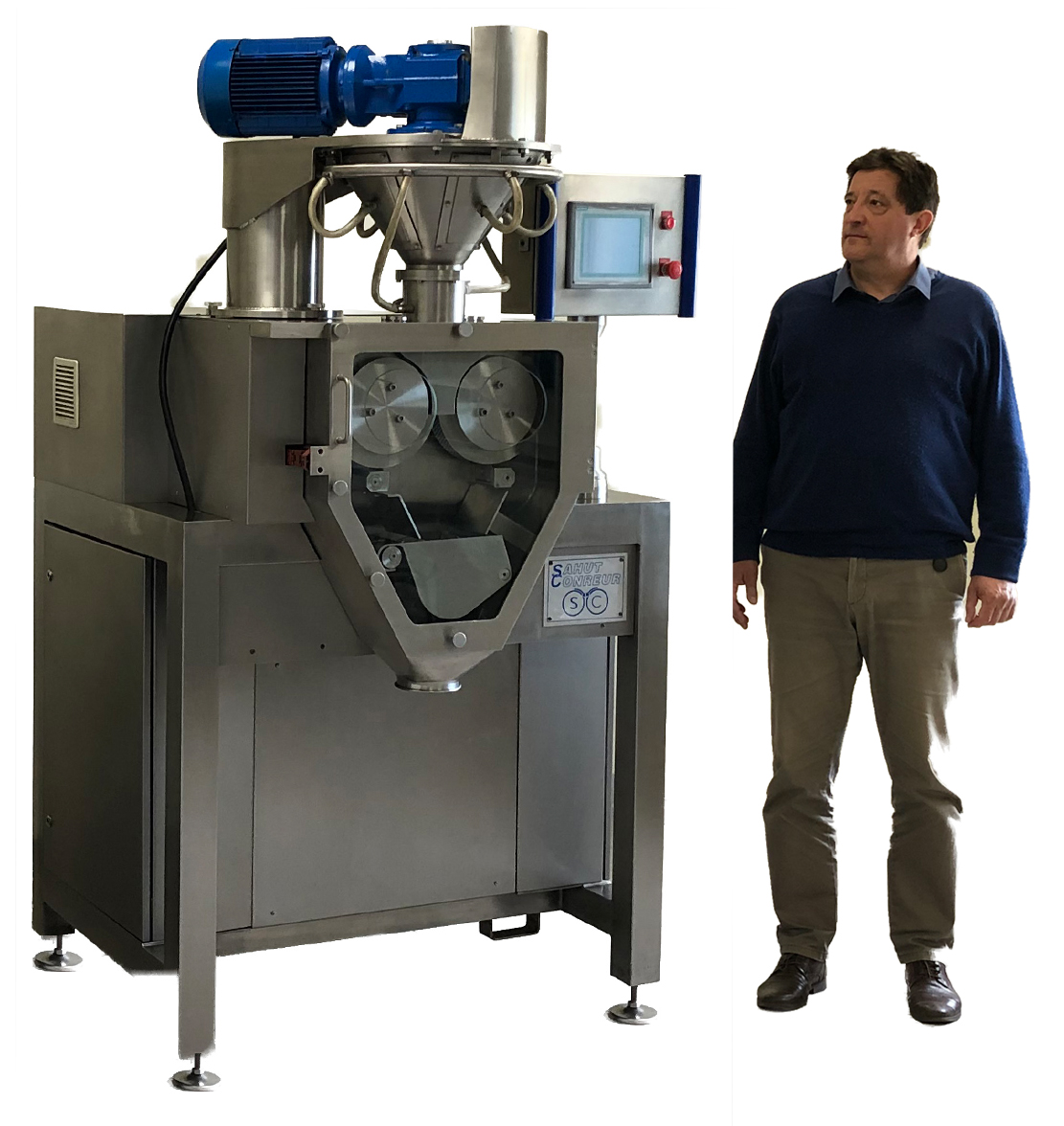
Feeding system of the lab-compactor
The lab-compactor is equipped with a force feeder with conical screw to feed the rolls. Thanks to its conical shape, the force feeder enables to predensify the powders before their compaction and so to obtain a better compacted product. For very aerated powder and low density, an optional deaeration device (vacuum pump) can be installed in the force feeder to remove the air contained in the product before its compaction.Rolls
The rolls are installed in cantilever or they are mounted outside the mechanical part of the machine. This special design allows to completely isolate the “process zone” from the mechanical part of the lab-compactor.The surface of the rolls (pocketed, knurled, corrugated,…) depends on the raw material properties and final product requested.
 For thermosensitive products or which present a detrimental overheating during the compaction, a optional cooling system (water circulating in the rolls) can be installed.
For thermosensitive products or which present a detrimental overheating during the compaction, a optional cooling system (water circulating in the rolls) can be installed.
Hydraulic system
Thanks to the hydraulic system, a force adjusted according to the product is applied on the mobile roll.The maximum force applied is 250 kN which corresponds to a maximum pressure of 50 kN/lcm.
Granulator
Concerning the compaction-granulation process, the lab-compactor is equipped with a granulator
whose the
rotor and the screen are also cantilever-mounted to isolate the “process zone” from the mechanical
part.
For a better efficiency and a granules low particule size request, a secondary granulator can be installed just below the first one.
For a better efficiency and a granules low particule size request, a secondary granulator can be installed just below the first one.
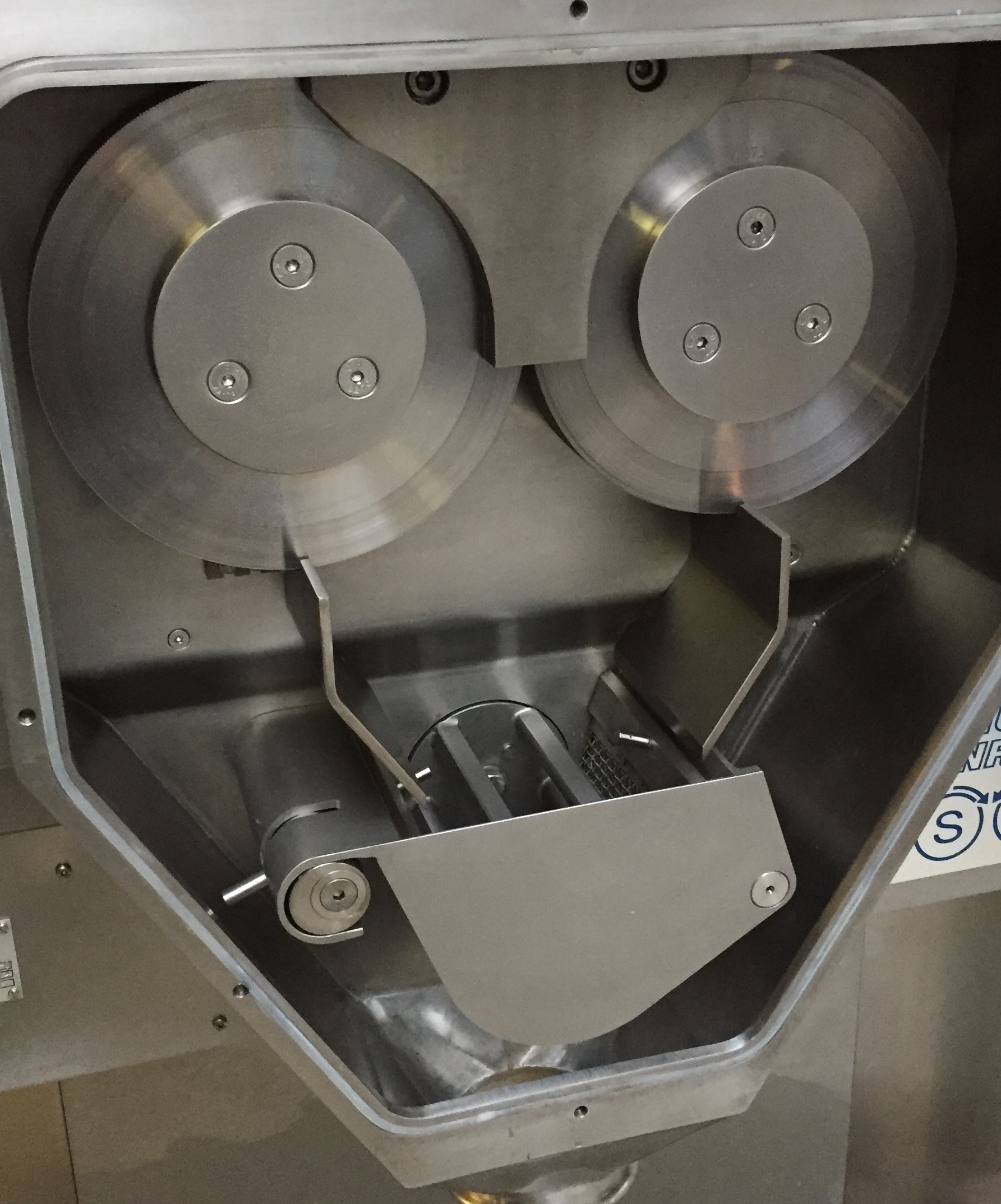
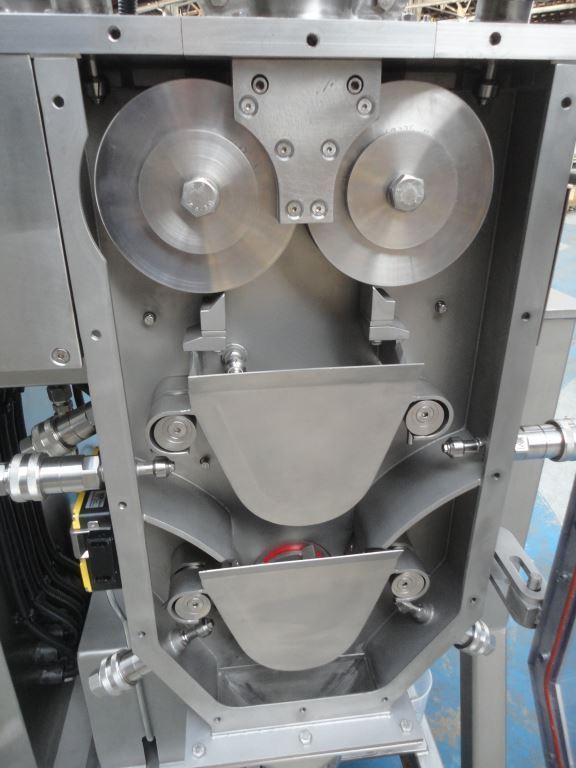
Control panel
The lab-compactor is fitted with a control and drive panel which enabled to adjust and visualise the different operating parameters (force-feeder’s screw speed, rolls speed, pressure in the hydraulic circuit, granulator’s rotor speed) and to continuously check the operating conditions (motors amperage, charge on the product, thickness of the compacted product…)Lab-compactor characteristics
| MP1/250/50 | MP1/250/50/20 | |
|---|---|---|
| Rolls diameter (mm) | 250 | 250 |
| Rolls width (mm) | 50 | 50 |
| Hydraulic system (kN/Lcm) | 0 – 50 | 0 – 50 |
| Rolls speed (Rpm) | 0 – 25 | 0 – 25 |
| Force-feeder speed (Rpm) | 0 – 150 | 0 – 150 |
| Granulator speed (Rpm) | - | 0 – 100 |
| Total power (kW) | 6.6 | 7.7 |
| Dimension (mm) | 1300x1200x2000 | 1300x1200x2000 |
| Weight (kg) | 1600 | 1700 |
| Voltage | 230 Volts monophase or 400 Volts triphase | |
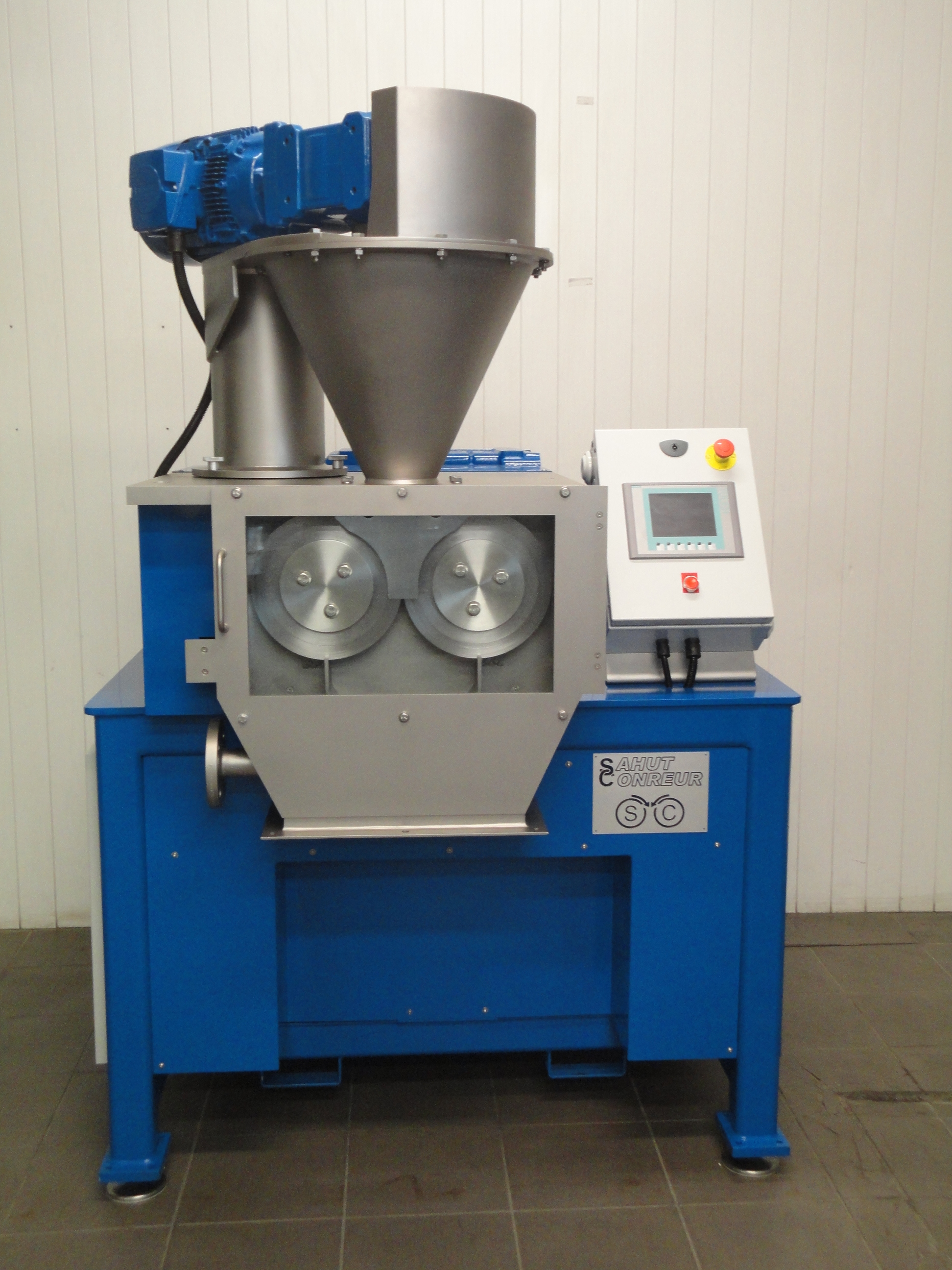
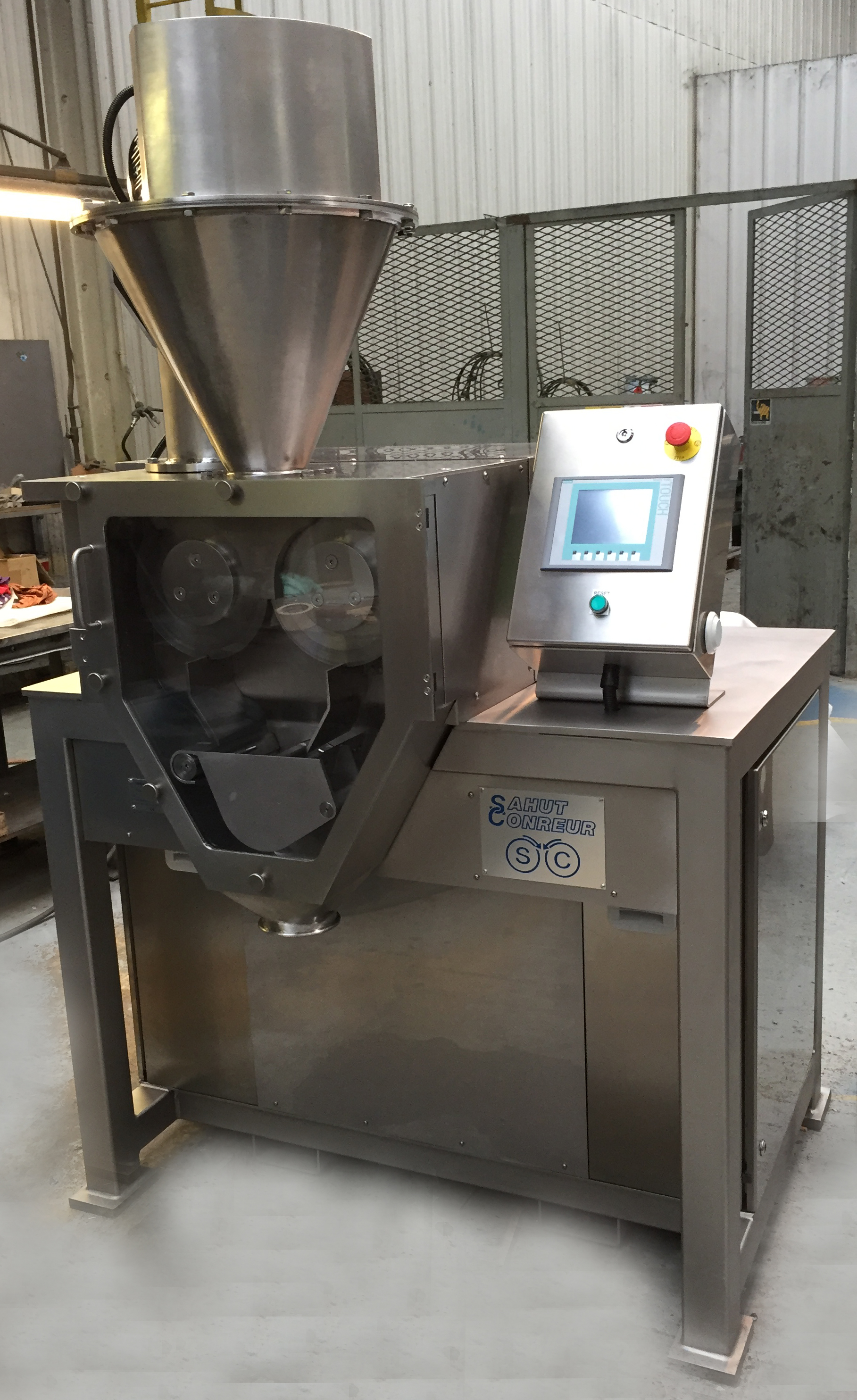
Options
The lab-compactor can be customized with the below available options:- Stainless steel 304 L or 316 L for the parts in contact with the product.
- All parts in stainless steel 304 L or 316 L.
- Double granulators.
- Deaeration device system of the force feeder with possibly cheek plates.
- Rolls cooling system.
- Sampling device of flakes before granulation.
- Control/drive system with data recording.
- Polished mirror
- Gap sensor
- Force sensor




